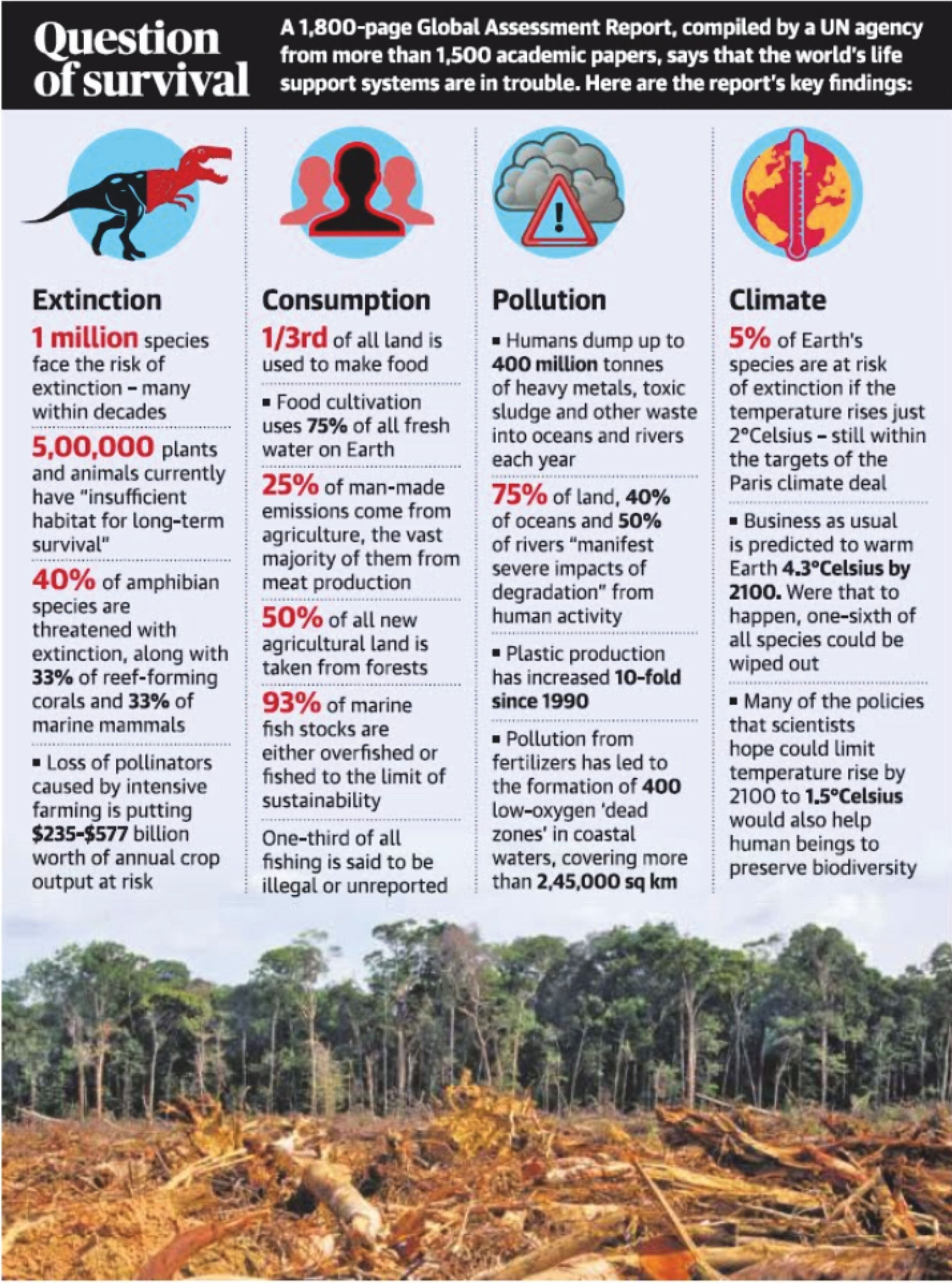Biodiversity & Environment
UN Report on Species Extinction
- 07 May 2019
- 4 min read
- The Intergovernmental Science-Policy Platform on Biodiversity and Ecosystem Services (IPBES) has released the UN report on species extinction. It is estimated that up to 1 million of the estimated 8 million plant and animal species on Earth are at risk of extinction within decades.
Significance of the report
- The assessment is the most accurate and comprehensive review yet of the damage people are inflicting on the planet. And they warn that nature is declining at "unprecedented" rates and that the changes will put people at risk.
- The report identified a range of risks, from the disappearance of insects vital for pollinating food crops, to the destruction of coral reefs that support fish populations that sustain coastal communities, or the loss of medicinal plants.
- Decline of native species in most major land-based habitats by at least 20%, mostly since 1900.
- It emphasizes that business and financial concerns are also threatened. We are eroding the very foundations of our economies, livelihoods, food security, health and quality of life worldwide.
- Key global threats: human’s use of land and sea resources, climate change, pollution and invasive species.
- Ocean ecosystems degrading as temperatures rise towards 2 degrees Celsius above preindustrial levels. Loss of coral reefs to warming and acidifying oceans could cause a collapse in commercial and indigenous fisheries.
Some of the report's notable findings
- Damage extent: 75% of the land environment and 66% of the marine environment impacted due to anthropogenic activities.
- Loss of pollinators: Up to $577 billion in annual global crops are at risk from pollinator loss. Insect pollinators are unfortunately an excellent example of the problems caused by human activities."There's a newly coined phrase for insect declines — the 'windshield effect’.
- Increased risk of floods and hurricanes because of loss of coastal habitats and protection.
- Pollution and waste
- Plastic pollution has increased tenfold since 1980.
- 300-400 million tons of heavy metals, solvents, toxic sludge and other industrial waste are dumped into the world's water systems.
Conclusion
- Biodiversity and nature's contributions to people are our common heritage and humanity's most important life-supporting 'safety net.' But our safety net is stretched almost to breaking point.
- Humans as both the cause of the threat and a target of its risks. As humanity demands ever more food, energy, housing and other resources, they say, it's also undermining its food security and long-term prospects.
- The essential, interconnected web of life on Earth is getting smaller and increasingly frayed.
- Profound economic and social changes would be needed to curb greenhouse gases quickly enough to avert the most devastating consequences of a warming world.
IBPES
The Intergovernmental Science-Policy Platform on Biodiversity and Ecosystem Services (IPBES) is an independent intergovernmental body, established by member States in 2012.
Objective of IPBES: Strengthen the science-policy interface for biodiversity and ecosystem services for the conservation and sustainable use of biodiversity, long-term human well-being and sustainable development.
The windshield effect
Also, the windscreen phenomenon is a term given to the anecdotal observation that people tend to find fewer insects smashed on the windscreens of their cars now compared to a decade or several decades ago. This effect has been ascribed to major global declines in insect abundance.







